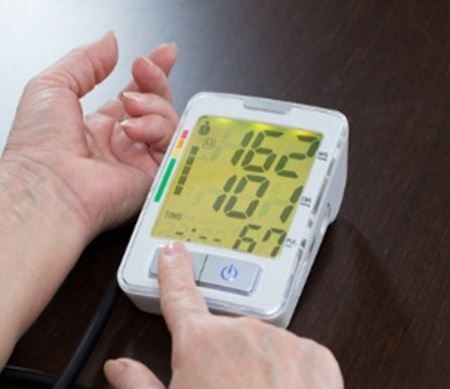Article
Is “Resistant Hypertension” Still a Useful Category?
A recent case review feature in Hypertension got this author thinking first and foremost about medication adherence. Your thoughts?
©MonoLiza/Shutterstock.com

In a “Clinical-Pathological Conference” feature in a recent issue of Hypertension, the authors discuss a patient on 5 antihypertensive agents and still above target blood pressure (195/110 mm Hg).1 The patient is described as having resistant hypertension-ie, she is adherent to a 3-drug regimen including a diuretic and her blood pressure remains above target. Clinical aspects of this particular variety of hypertension are debated. The authors navigate some choppy, but important waters, and it is worth revisiting selected points of their discussion.
#1. Their first statement is critical, “I think without having checked adherence of your patient, you cannot talk about resistant hypertension. It is as simple as that.”1
The question of medication adherence is crucial. Twenty-five percent of patients referred to resistant hypertension clinics are not taking their medications as prescribed.1 Patients who are not taking their medicines appropriately should not be labeled as resistant. A diuretic has to be part of the regimen and 12.5 mg of hydrochlorothiazide does not qualify. The authors were committed enough to the role adherence plays in such a scenario that they did not label this patient as “resistant” until her blood pressure remained elevated on directly observed therapy.
#2. Regarding the workup for secondary causes of hypertension when medication resistance is diagnosed, the practice of screening renin and aldosterone levels and calculating the ratio of aldosterone/renin is not without controversy. The authors recount the uncontroversial steps in their work-up to eliminate secondary causes and report normal electrolytes and renal function, normal catecholamines (serum and urine), normal imaging of the adrenal glands and renal arteries. No discernable secondary cause found. Then came the controversial renin and aldosterone screens. What was the problem?
The patient’s antihypertensive regimen was: enalapril 40 mg/day, bisoprolol 10 mg daily, lercanidipine 10 mg (a dihydropyridine calcium channel blocker), losartan 50 mg daily, (this author strongly disagrees with dual blockade of the renin-angiotensin system), and indapamide 2.5 mg/day. Her renin value was maximally suppressed (0.17nmol/L/hour) and the aldosterone was low.
But, consider this... (please click below)
Consider the fact...
But, consider the fact that antihypertensive medications can affect renin and aldosterone values and thereby change the sensitivity and specificity of the ratio as a screen for autonomous aldosterone production:
• Enalapril/losartan increase renin
• Bisoprolol decreases renin and aldosterone
• Indapamide increases both, and
• The dihydropyridine calcium channel blocker may increase renin
So, is there a way to avoid the confounding these drugs impose on tests for aldosterone excess?
One option is to stop the agents in question for 2 weeks. Alternatively, the beta blocker could be discontinued since it can lower renin and the ratio. Or, alpha blockers can be used during the 2 week interim since they do not affect renin and aldosterone levels. For obvious reasons, however, in cases of severe hypertension, 2 weeks without medications is simply dangerous. The authors chose to obtain renin and aldosterone levels on her usual regimen. They suggested excess, autonomous aldosterone.
#3. Spironolactone is the agent of choice when patients are diagnosed with resistant hypertension-aldosterone and renin values notwithstanding. The authors stopped enalapril and replaced it with 25 mg/day spironolactone. Blood pressure decreased to 160/90 mm Hg. Spironolactone can be titrated to doses of 200 mg/day.1 The plan for the future was to titrate spironolactone upward.
Other authors similarly engage the present controversy of aldosterone renin values in patients on multiple blood pressure medications.2,3 This author continues antihypertensives as prescribed except when a beta blocker can be stopped without danger. Even if the values do not suggest aldosterone excess, spironolactone is tried, unless there is a contraindication (hyperkalemia).
References:
1. George MJ, Marks DJB, Rezk T, et al. Resistant hypertension: trials and tribulations. Hypertension. 2018;71:772-780.
2. Wolley MJ, Stowasser M. New advances in the diagnostic workup of primary aldosteronism. J Endocrine Soc. 2017;1:149-161.
3. Stowasser M., Ahmed AH. Pimenta PJ, et al. Factors affecting the aldosterone/renin ratio. Hormone Metab Res. 2012;44:170-176





